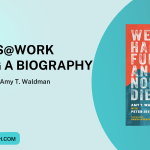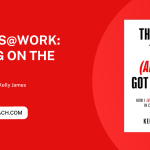How Passion Fuels Productivity
February 15, 2022
Note From Rochelle
Dear Writers,
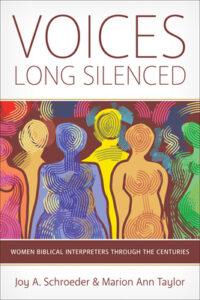 I’m so excited for today’s tip. I interviewed scholars Joy A. Schroeder and Marion Ann Taylor about their new book, Voices Long Silenced: Women Biblical Interpreters through the Centuries. I was lucky enough to read excerpts of the book as it was being created, and the stories are fascinating. I can’t wait to get my copy! Read on to learn more about how the authors’ passion for the project fueled their research and writing practice.
I’m so excited for today’s tip. I interviewed scholars Joy A. Schroeder and Marion Ann Taylor about their new book, Voices Long Silenced: Women Biblical Interpreters through the Centuries. I was lucky enough to read excerpts of the book as it was being created, and the stories are fascinating. I can’t wait to get my copy! Read on to learn more about how the authors’ passion for the project fueled their research and writing practice.
Happy writing,
Rochelle, the Write Now! Coach
Writers@Work: How Passion Fuels Productivity
An Interview with Joy A. Schroeder and Marion Ann Taylor
Welcome to the blog! Can you tell us about your new book, Voices Long Silenced: Women Biblical Interpreters through the Centuries?
Our book tells the stories of Jewish and Christian women (and a few atheists and skeptics) who interpreted the Bible from 150 CE to the present. This is the first book to narrate this 2,000-year history. Our diverse array of women includes a third-century North African martyr who kept a prison diary; medieval nuns who penned visionary writings; an Ethiopian Orthodox Christian woman in the 1600s who resisted missionaries’ efforts to make her conform to European Christian practices; a female rabbi ordained in Berlin, Germany, in 1935; several nineteenth-century African American preachers; and many others. More than 400 women are mentioned by name. Women had remarkable new insights into the biblical text. Living in cultures that used scripture as justification for restricting women’s roles and suppressing their creativity, female biblical interpreters frequently employed passages from the Bible to emphasize the dignity and rights of women.
This book is packed full of stories about women studying scripture and interpreting it in their writing long before that was the norm. For some of these women, writing about scripture was a dangerous task! Can you share a couple of stories that inspire you as you write?
Marion: I am very inspired by Katharina Schütz Zell (ca. 1498-1562), a German woman who is now considered one of the foremost pastoral theologians of the sixteenth century. She dared to marry a Catholic priest at a time when clergy marriage was forbidden. Then, because of the hostile response to their marriage, she dared to defend clergy marriage and argue that celibacy was not more holy than marriage. Without informing her husband, she wrote her defense of clergy marriage in a letter to the bishop of Strasbourg. She later revised and expanded her letter, publishing it as a pamphlet in 1524. She went on to write and publish many other letters that showcased her pastoral skills and her deep knowledge of Scripture and theology. She even dared to preach at her husband’s funeral and to officiate at the funerals of nonconformists. I love her courage, and I’m very glad that her voice is no longer silent.
Because I’m an Old Testament scholar, I am particularly inspired by women who dared to break the silence and write commentaries on the Bible. I remember the day when Sarah Trimmer’s 1805 commentary on the entire Bible arrived in the mail. I love her work. Trimmer was a very careful reader of the Bible and I use it in my teaching and preaching. I referenced it several times in the commentary I wrote on Ruth and Esther. https://www.zondervan.com/9780310490890/ruth-esther/
Finding substantial works of biblical commentary by women written 200 years ago made me quite angry. Why did I not know that women before the 1970s published very significant books on the Bible? Why were these women never mentioned in history? Why were their interpretations of the Bible not considered to be important enough to be remembered? Why were these women silenced? I’m very excited that we can now stand on the shoulders of hundreds of women who have gone before us. They are our dead mentors who can help us be more confident in who we are as women interpreters of the Bible.
This book must have taken an enormous amount of research. Many writers struggle with research—getting bogged down in reading and never writing. How did you juggle research and writing so that you were able to keep writing forward?
Joy: Every time I researched a different woman and started a new section, I tried to immerse myself in everything she had written and learn enough about her historical setting to tell her story competently. Taking handwritten notes, I identified details and quotations that were most striking. At a certain point in the research I knew I had to just start writing. It helped to have a writing coaching group (Rochelle’s “Writing Goddesses”) whose members expected to receive a new section of writing once every two weeks.
Marion: This is a great question. I have been researching forgotten women interpreters of the Bible for over 20 years. In the early days, we didn’t know there were so many women just waiting to be found. But it didn’t take long before we discovered that there were not just a handful of women who published their interpretations on the Bible but hundreds and hundreds of women through the ages who put pen to paper and shared their interpretations of the Bible with others. I think I didn’t get bogged down in the numbers because I was so excited by the project’s importance. Knowing that women interpreted Bible through history was game changing for me. And I knew it would be game changing for others, and so my passion to spread the news kept me motivated to keep moving to get the word out.
You two both teach, speak, and write. What are some of the strategies you use to get writing done, especially when time is tight?
Marion: Being a mother of three children helped me to become a multitasker early on in my career. My children are now grown up, and so it’s easier for me to get large chunks of time to do research and writing. I am privileged to be able integrate my research and teaching at Wycliffe College. One of my strategies is to include things that I’m doing research on in my teaching and speaking. That helps me in my writing but also in getting the word out about forgotten women’s voices. Because I find it helpful to have a deadline for writing projects, I present papers related to my research and writing at academic conferences. I think the bottom line for me is, I’m very committed to the importance of recovering women interpreters and so this passion drives me to get my work done.
Joy: I need all the help I can get to keep on track. First, I use a large weekly planner to schedule writing time. After writing my fixed commitments like classes and meetings in the planner, I look for spots in my week where I can schedule writing sessions. I write those into my planner—in ink. Second, I have a colleague who does “parallel writing” with me. Before COVID, we shared a table at coffee shops, each of us working on our separate projects. Now we mostly check in by phone. Third, I have a women’s scholarship accountability group. Several female professors and scholars from different disciplines check in for half an hour each week (currently via Zoom) to report briefly on accomplishments during the last week and to set goals for the next week. We don’t share our work in progress or critique one another’s research. In fact, coming from different academic departments, we barely understand one another’s projects in other than the most general way. The point is the accountability. Finally, I receive individual and group coaching from Rochelle and the Writing Goddess group members, who read my draft pages, offer feedback, and provide support.
What are you reading?
Joy: The Dawn of Everything: A New History of Humanity by anthropologist David Graeber and archeologist David Wengrow.
Marion: Right now, I am reading the writings of 16th-century women on the apostle Paul. Because some Pauline writings have been used to silence women, it’s fascinating to read about how women who felt called to speak, to teach, and to write interpreted these and other Pauline texts.
About the authors”
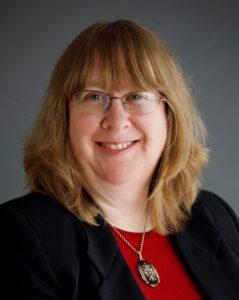 Dr. Joy A. Schroeder, a Lutheran pastor, specializes in the history of biblical interpretation. She is professor of church history at Trinity Lutheran Seminary and the Department of Religion and Philosophy at Capital University, Columbus, Ohio. She is the author of Deborah’s Daughters: Gender Politics and Biblical Interpretation and several other books on the history of interpretation of scripture.
Dr. Joy A. Schroeder, a Lutheran pastor, specializes in the history of biblical interpretation. She is professor of church history at Trinity Lutheran Seminary and the Department of Religion and Philosophy at Capital University, Columbus, Ohio. She is the author of Deborah’s Daughters: Gender Politics and Biblical Interpretation and several other books on the history of interpretation of scripture.
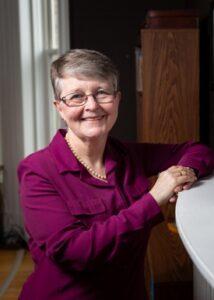 Dr. Marion Ann Taylor, an expert and pioneer in the field of the history of women’s biblical interpretation, is professor of Old Testament at Wycliffe College at the University of Toronto. Her publications include the award-winning Handbook of Women Biblical Interpreters: A Historical and Biographical Guide.
Dr. Marion Ann Taylor, an expert and pioneer in the field of the history of women’s biblical interpretation, is professor of Old Testament at Wycliffe College at the University of Toronto. Her publications include the award-winning Handbook of Women Biblical Interpreters: A Historical and Biographical Guide.





